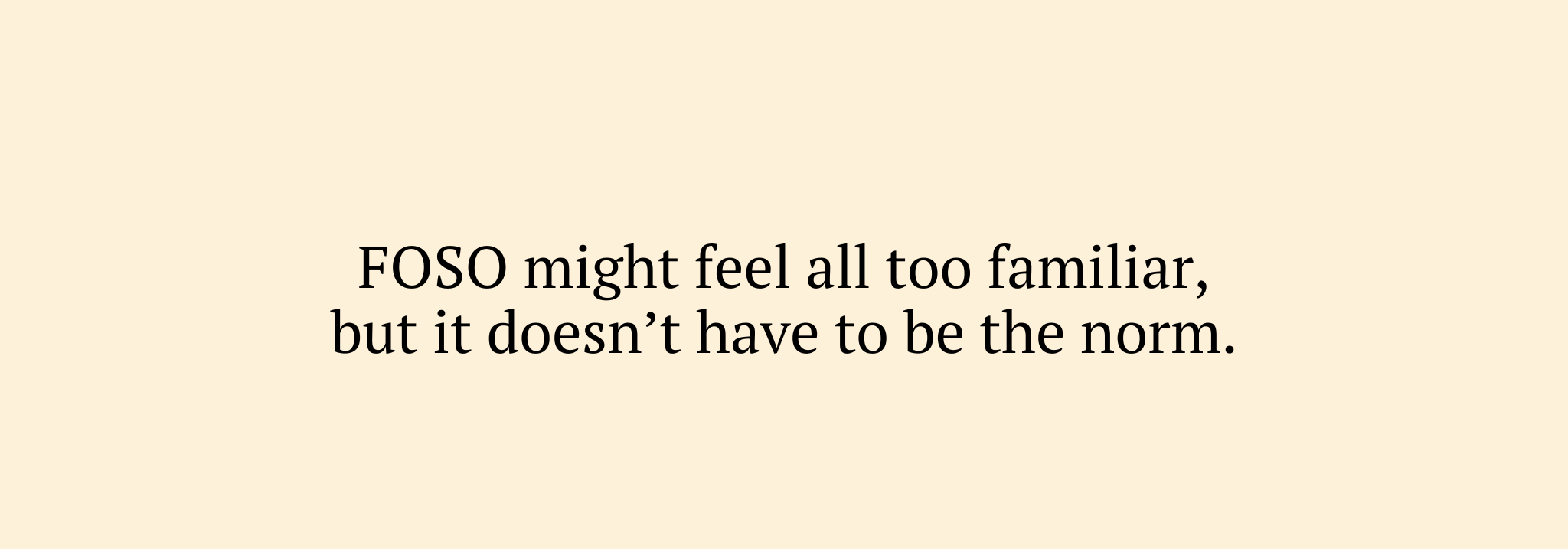Tired of feeling anxious about being away from work? If you have a ‘fear of switching off’, here’s how to fully disconnect, relax, and recharge
Have you ever painstakingly crafted your out-of-office message, eagerly anticipating a break from the daily grind, only to find yourself still checking emails and taking calls when you should be in full vacation mode? You think: “Just one quick reply won’t hurt,” but it’s a slippery slope into blurred boundaries, and soon you’re back in business mode before you’ve even unpacked your suitcase.
Not long ago, our primary concern was missing out (hello, FOMO), but a recent study sheds light on a new struggle: the difficulty of truly switching off. According to a survey by icompario.com, a staggering 67% of UK workers admit to peeking at their professional emails even while their out-of-office (OOO) is activated. If this sounds familiar, you might be suffering from a ‘fear of switching off’ – or, FOSO, for short.

So where does this urge to stay continuously connected come from?
“The fear of switching off, even on days assigned for rest and leisure, is often a coping strategy designed to move towards success, and at the very least, to avoid failing, looking bad, or falling behind,” explains executive coach Dr Mandy Lehto. “For people who associate success with achievement and recognition, working (and over-working), not only feels normal, but rather good – even the exhaustion, in a strange sort of way. Why? Because success has become associated with chronic doing, and feeling fried. Not stopping feels like a badge of honour, meaning that switching off can actually feel stressful, unfamiliar, and bring up anxiety.”
Tamu Thomas, a transformational coach and author of Women Who Work Too Much, agrees and adds, “We are taught to build our lives around work, which leads to exhaustion and burnout. Rest, joy, and personal interests, which are vital for our humanity and innovation, are dismissed as immature, frivolous distractions. Rest becomes a productivity too or a luxury, when in fact it is essential for regulating our nervous system so that we do not live in a state of survival, and are able to function at our optimal levels.”
So what lies behind these anxieties? Dr Lehto suggests it’s that familiar feeling of ‘not-enoughness’. “It’s a topic I explore with my guests on ‘Enough, the podcast’. Perfectionism and overachievement are often the strategies to demonstrate one’s worth and value to the outside world. The need to be productive constantly, to strive towards the next goal, and to be exceptionally good at your job can reflect a deeper desire to gain approval and external validation.”
If you’re wondering how we can look to combat FOSO, Dr Lehto has a suggestion: “You first need to recognise the impact your inability to relax is having on your relationships and wellbeing,” she says. “Are you always looking at your phone when spending time with your children or partner? Is your sleep disrupted on holiday because you’re checking work emails late at night? If so, it’s time to recalibrate.”
But, according to Tamu, there’s a simple way we can combat FOSO, and that’s to fill our lives back up with joy. “Joy can be found in dedicating two minutes a day to gently gazing at the sky and mindfully breathing, or creating a three-track playlist of your favourite childhood music and dancing first thing in the morning,” she advises. “Our society tends to favour intense, structured experiences such as retreats, holidays, and nights out, and overlooks the things we can do within the ordinariness of our day to cultivate joy.”

If you were thinking there was a magic ‘just do it’ switch you could press in order to shut off from your work worries, unfortunately it’s not quite that easy. Like most things, it takes practice and a lot of unlearning. “The hardwiring of these behaviours goes deep, often into our childhoods,” notes Dr Lehto. But she is keen to share that we can unlearn the fear of switching off. “Once you’ve noticed the negative impact these behaviours are having on your relationships and wellbeing, the first thing is to challenge your old winning strategy. Is relentless striving really contributing to my success? Or is it possible I’ve become successful in spite of (not because of) my chronic striving?
“Second, try running an experiment to create a bit of space for yourself. Start small, and expect your negative inner-self talk to show up. You might choose not to bring your phone to the dinner table, for instance. Or to switch it off entirely at 8pm. Does anything bad happen? Or did the space feel good? (or at least not bad).
“Thirdly, bring a new goal into your life, something unrelated to work. Perhaps it’s to meet up with a friend once a week. I call this ‘diversifying your success portfolio’, and not putting all your eggs in the ‘achievement’ basket,” Dr Lehto says.
In the end, FOSO might feel all too familiar, but it doesn’t have to be the norm. The key is fostering balance and boundaries, and, as Dr Lehto suggests, over time this practice can show real results – in fact, you may even arrive at the ‘joy of switching off’.


Comments